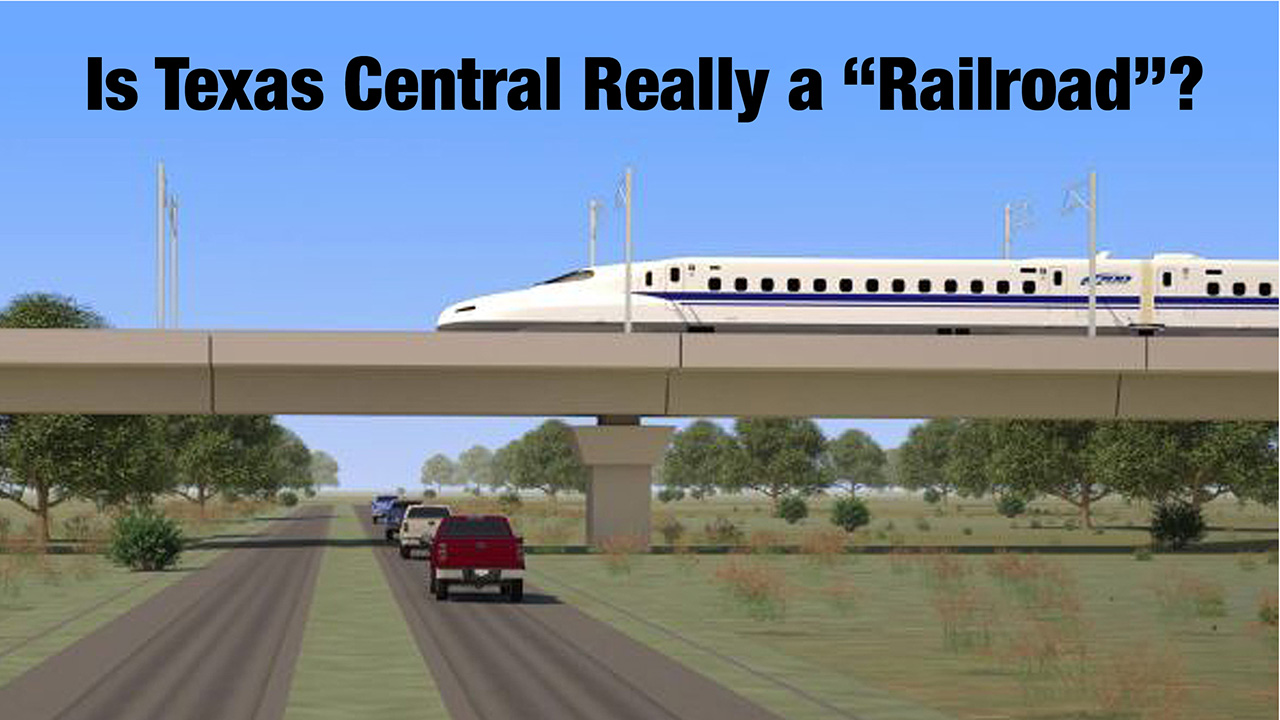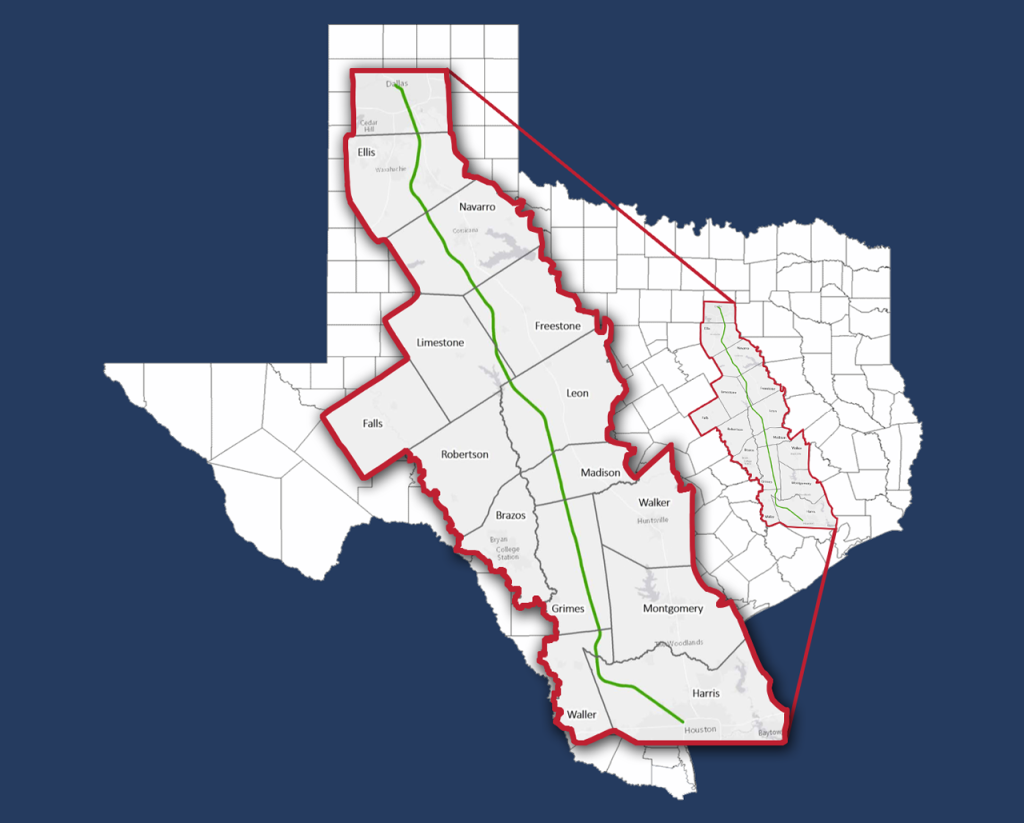Railway Age, 1/11/22
Part 1 of 4: A Temporary Victory for High-Speed Rail in the Lone Star State
When is a railroad not a railroad? Maybe “when it’s getting started in Texas.” The official answer to that question will come from the state’s Supreme Court within a few months. In a case with more twists and turns than a mountain railroad, the Court will decide whether Texas Central is a genuine railroad that can use a landowner’s private property by exercising eminent domain to build its right-of-way.
This case could be a seminal one in the decades-long struggle to establish high-speed rail (HSR) in the United States, or even new conventional rail lines that would be established by entities that have not yet reached the point where they are running trains on track that they own. The issue, in a nutshell, is whether an entity that is engaged in planning a new railroad can acquire the land that would be needed to build the first line. If the Court in Texas says no, it could spell not only the demise of the Texas Central plan to build a line between Dallas and a point at the intersection of two highways northwest of Houston, but such a rejection could apply the brakes to similar potential projects elsewhere.
Because of the complexity and potential implications of this case, it will require more than one article to present the case, the issues, and the potential ramifications if the Court finds against Texas Central. So
we will present a four-part series for now and will report the Court’s opinion when it comes down.
In this, the first article in the series, we will describe the dispute, the early victory for the property owner who is fighting against the establishment of a high-speed rail line in Texas, and a subsequent reversal in favor of the line on appeal. In the second article, we will analyze the issues presented by both sides before the Texas Supreme Court on a petition for review. At this writing, the case before the Court continues. We will look at the present controversy, as it now stands, in the third article in this series. In the fourth and final article for now, I will comment on what the case could mean for future efforts to build new rail lines, depending on how the Court rules.















